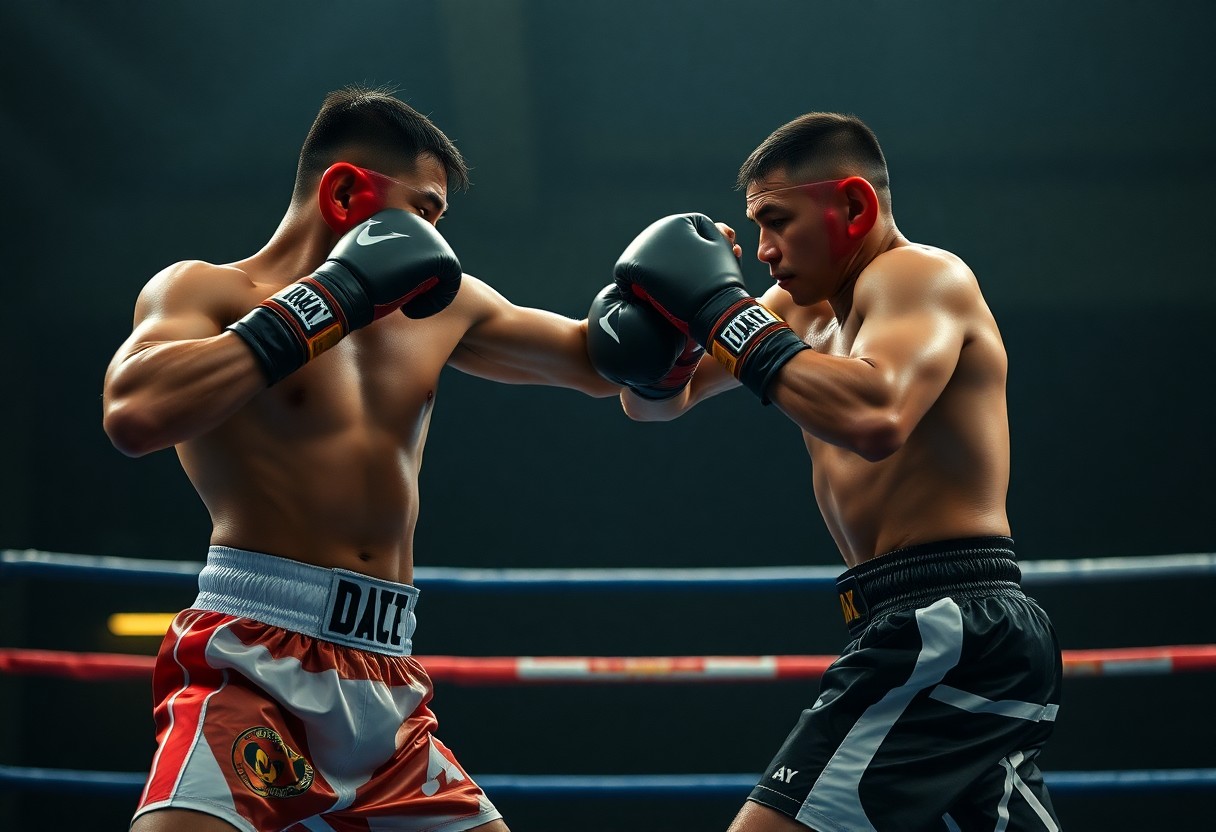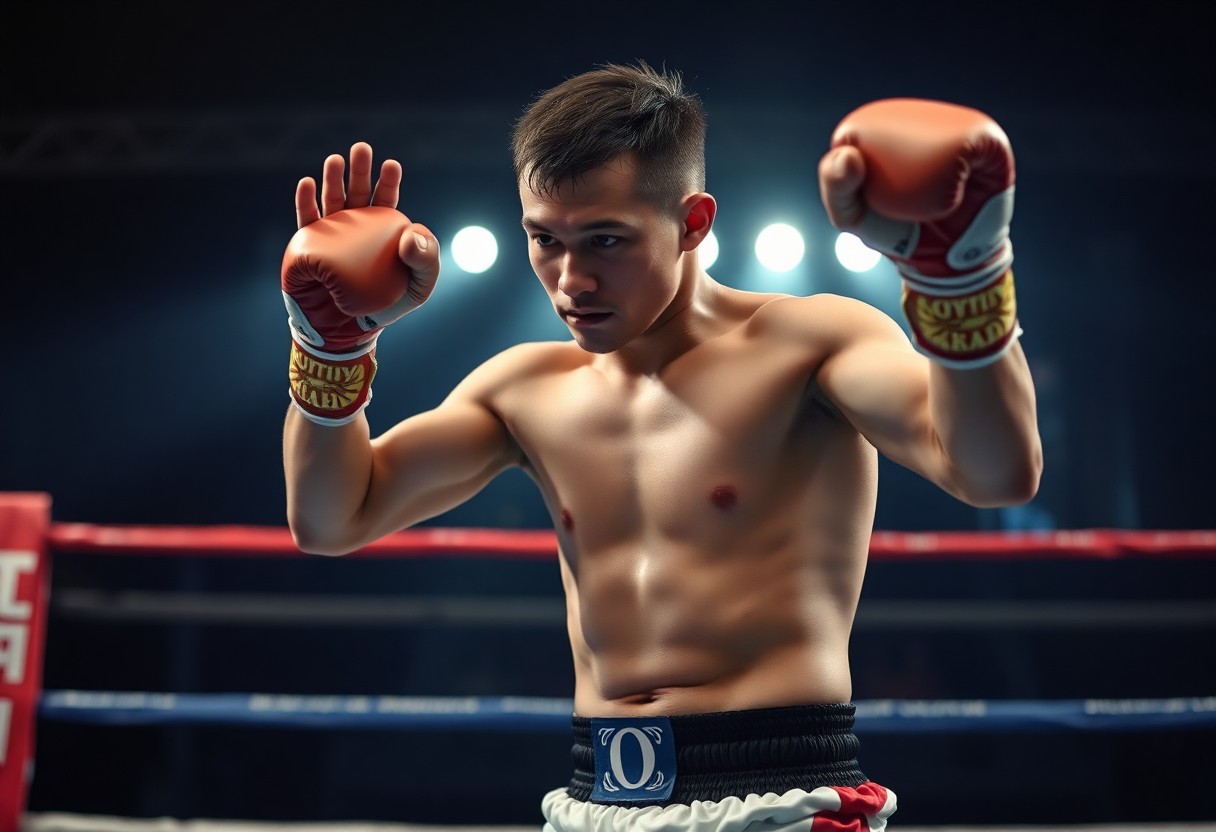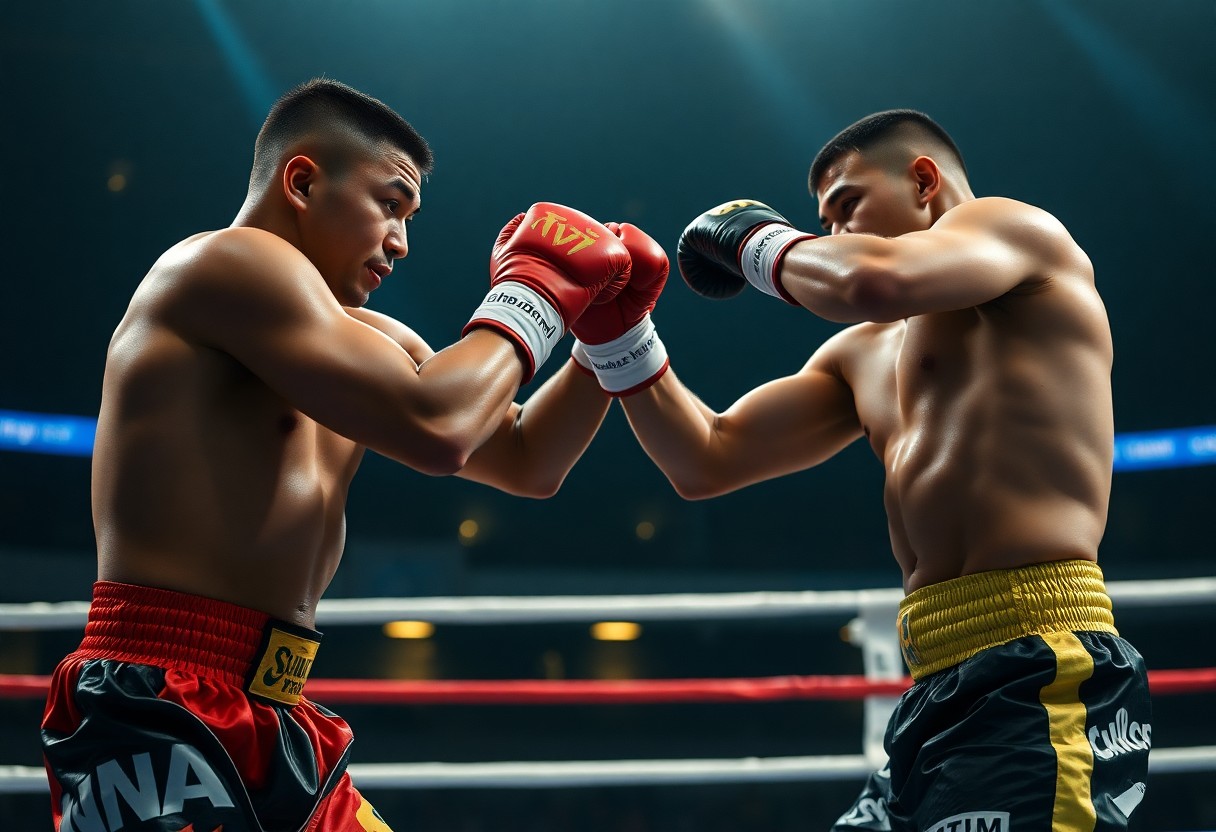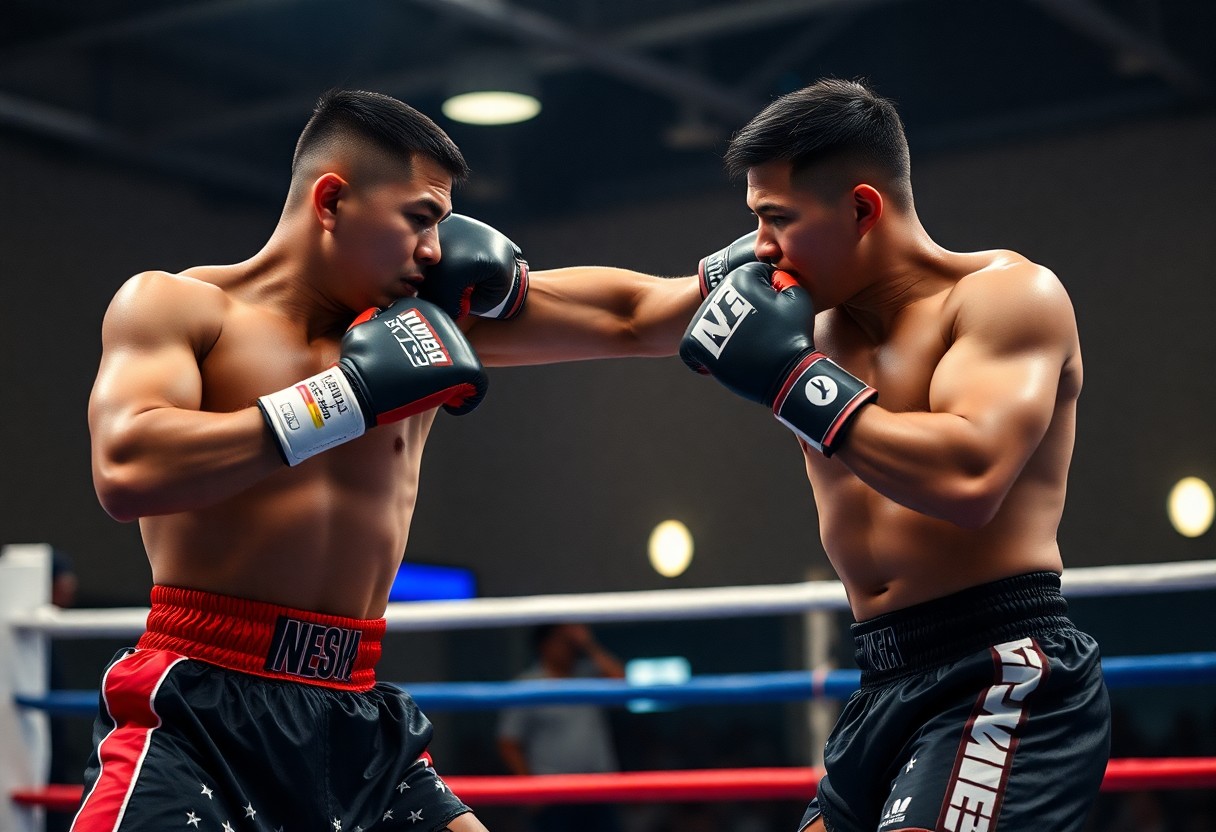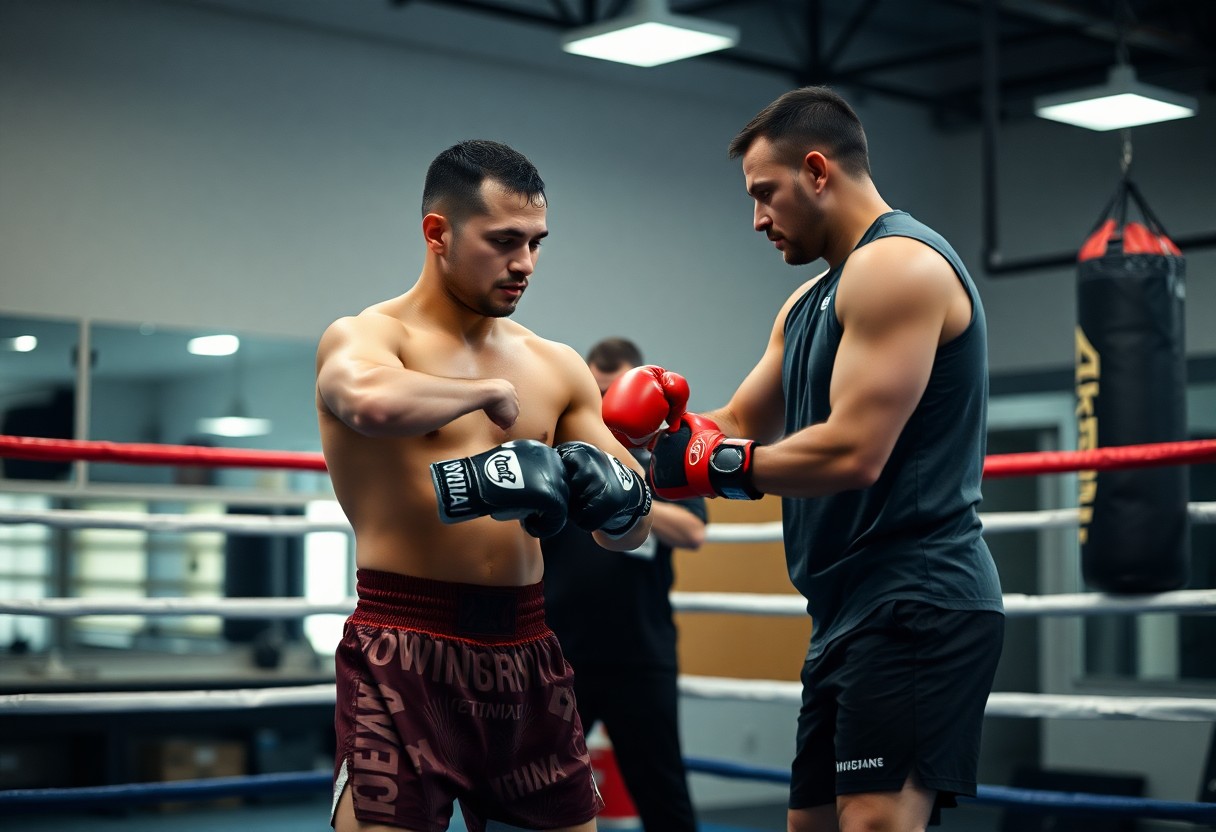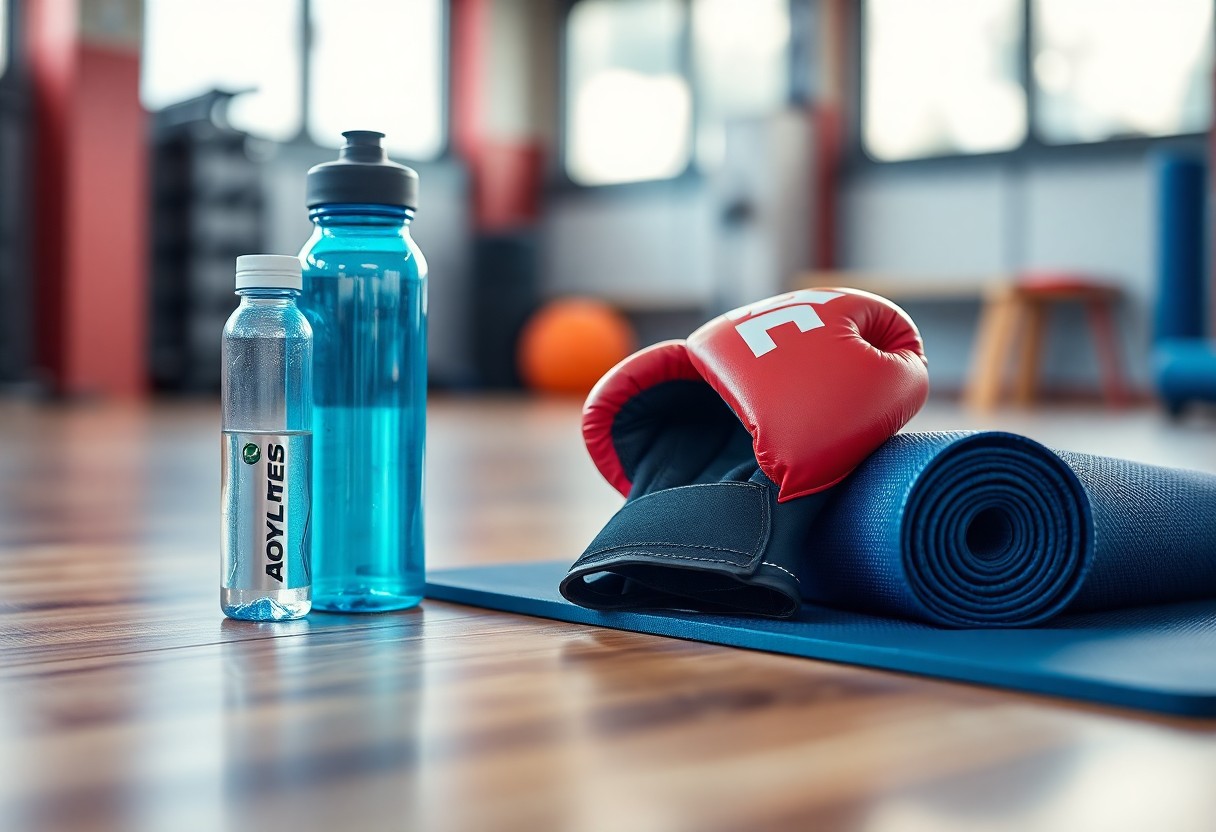
Just beyond its reputation as a combat sport, Muay Thai offers you a comprehensive pathway to enhanced physical and mental wellness. This ancient Thai martial art combines high-intensity cardiovascular training with strength building, flexibility enhancement, and stress relief in ways that traditional gym workouts often cannot match. When you practice Muay Thai regularly, you’ll experience improved heart health, increased muscle tone, and better coordination while simultaneously developing mental resilience and self-confidence. However, it’s important to note that proper technique and gradual progression are crucial to avoid injury, as the sport involves powerful strikes and demanding physical movements that require careful attention to form and safety protocols.
The Physical Transformation: Strength and Endurance
Your body undergoes remarkable changes within weeks of starting Muay Thai training. Functional strength develops rapidly as you execute thousands of strikes, kicks, and defensive movements that engage multiple muscle groups simultaneously. Unlike isolated gym exercises, Muay Thai creates athletic power through compound movements that mirror real-world physical demands. Your endurance capacity can increase by 15-25% within the first three months of consistent training, as your cardiovascular system adapts to the sport’s intense interval-style workouts that alternate between explosive bursts and active recovery periods.
Building Muscular Strength Through Technique
Every Muay Thai technique functions as a resistance exercise disguised as skill development. Throwing 100 kicks per leg during a single session builds tremendous hip flexor, glute, and core strength while improving balance and coordination. Your punching combinations develop shoulder stability, tricep power, and rotational core strength as you generate force from your feet through your fists. Clinch work transforms your grip strength and upper body endurance, often requiring you to control an opponent’s movement for 2-3 minute rounds while maintaining proper posture and executing knee strikes.
Enhancing Cardiovascular Fitness and Stamina
Muay Thai training sessions mirror high-intensity interval training protocols that elevate your heart rate to 80-90% of maximum capacity during active rounds. Your cardiovascular system adapts quickly to these demands, improving oxygen delivery to working muscles and enhancing your body’s ability to clear metabolic waste products. Regular practitioners often achieve resting heart rates 10-15 beats per minute lower than sedentary individuals, indicating superior cardiovascular efficiency.
The sport’s unique combination of aerobic and anaerobic demands creates superior cardiovascular adaptations compared to steady-state cardio activities. Research shows that combat sport athletes typically maintain VO2 max levels 20-30% higher than recreational fitness enthusiasts, largely due to the varied intensity patterns inherent in training. Your body learns to recover quickly between high-intensity bursts, developing what exercise physiologists call “cardiac resilience” – the ability to return to baseline heart rate rapidly after intense exertion. This translates to improved stamina in daily activities, from climbing stairs without breathlessness to maintaining energy levels throughout demanding workdays. The mental component of pushing through fatigue during sparring sessions also builds psychological endurance that extends beyond physical training.
Mental Resilience: Cultivating Discipline and Focus
Muay Thai transforms your mental landscape through consistent exposure to controlled stress and discomfort. Each training session demands you push through fatigue, maintain technique under pressure, and execute combinations while your body screams for rest. This systematic conditioning builds neural pathways that strengthen your ability to remain calm and focused during challenging situations outside the gym. Studies show that martial arts practitioners demonstrate 23% better stress management compared to sedentary individuals, with improved cortisol regulation and enhanced decision-making under pressure.
The Impact of Training on Mental Toughness
Sparring sessions and pad work create micro-moments of adversity that forge unshakeable mental fortitude. Your brain adapts to processing multiple stimuli simultaneously – tracking your opponent’s movements, calculating distance, and executing counter-attacks while managing adrenaline. This cognitive load strengthens your prefrontal cortex, the brain region responsible for executive function and emotional regulation. Professional fighters report that the mental skills developed in Muay Thai directly translate to handling workplace stress, public speaking, and personal challenges with greater composure and clarity.
How Muay Thai Shapes Goal-Setting and Consistency
The belt ranking system and technique progression in Muay Thai creates a structured framework for achievement that rewires your approach to long-term objectives. Each new combination mastered or sparring milestone reached reinforces the neural pathways associated with delayed gratification. Your brain begins to associate consistent daily effort with tangible progress, making it easier to apply this mindset to career advancement, fitness goals, or personal relationships.
Training schedules naturally develop your ability to maintain consistency even when motivation wanes. Research indicates that martial artists show 40% higher adherence rates to long-term commitments compared to those engaged in traditional fitness activities. The physical discomfort of training teaches you to distinguish between genuine limitations and temporary discomfort, a skill that proves invaluable when pursuing ambitious goals. Your relationship with failure also transforms – instead of viewing setbacks as defeats, you begin to see them as data points for improvement. This shift in perspective, cultivated through countless rounds of getting knocked down and getting back up, becomes a cornerstone of resilience that extends far beyond the training mat into every aspect of your personal and professional life.
Stress Relief and Emotional Well-being: The Psychological Benefits
Beyond the physical transformations, Muay Thai delivers profound psychological benefits that extend far beyond the training mat. Regular practitioners report a 40-60% reduction in stress levels within just eight weeks of consistent training. The demanding nature of pad work, heavy bag sessions, and technical drills creates a mental sanctuary where daily worries dissolve into focused movement. Your mind enters a flow state during training, where the complexity of combinations and defensive techniques requires complete presence, effectively interrupting the cycle of anxious thoughts and mental tension.
Physical Activity as a Natural Stress Reliever
Muay Thai’s high-intensity intervals trigger your body’s natural stress-response reset mechanism. Each three-minute round followed by one-minute rest mirrors the body’s optimal stress-recovery cycle, teaching your nervous system to efficiently transition between activation and relaxation. The explosive movements of kicks, knees, and punches provide immediate physical outlets for accumulated tension, while the rhythmic breathing patterns required during training activate your parasympathetic nervous system, naturally lowering cortisol levels and blood pressure.
The Role of Endorphins in Enhancing Mood
The intense physical demands of Muay Thai training trigger substantial endorphin release, often called the “fighter’s high.” Studies show that martial arts training can increase endorphin levels by up to 200%, creating natural mood elevation that lasts 2-4 hours post-workout. This biochemical response helps combat depression, anxiety, and general mood disorders without pharmaceutical intervention.
Your brain’s endorphin production during Muay Thai training creates a cascade of positive neurochemical changes that extend well beyond the immediate post-workout period. The combination of physical exertion, skill mastery, and controlled aggression stimulates the release of dopamine, serotonin, and norepinephrine alongside endorphins, creating what researchers call a “neurochemical cocktail” for mental wellness. Regular practitioners often experience improved sleep quality, enhanced focus at work, and greater emotional resilience in daily challenges. The endorphin response becomes more pronounced as your fitness improves, with advanced practitioners reporting mood benefits that can last up to 24 hours after intense training sessions.
Community Connection: The Social Benefits of Muay Thai
Training in Muay Thai connects you with a diverse community of practitioners who share your commitment to personal growth and physical excellence. Your gym becomes a second home where friendships form naturally through shared challenges and mutual respect. The social bonds you develop extend far beyond training sessions, creating a support network that enhances your overall quality of life. Studies show that people who participate in group fitness activities report 25% higher levels of social satisfaction compared to those who exercise alone, and Muay Thai’s emphasis on partner training amplifies these benefits significantly.
Building Relationships Through Training and Sparring
Sparring partners become trusted allies as you learn to read each other’s movements and develop timing together. The vulnerability required in training creates authentic connections that translate into lasting friendships. Your training partners witness your struggles and celebrate your victories, forming bonds that extend beyond the gym walls. Many practitioners describe their training partners as some of their closest friends, united by the shared experience of pushing physical and mental boundaries together.
The Sense of Belonging in Martial Arts Communities
Muay Thai gyms foster an inclusive environment where your background, profession, or fitness level matters less than your dedication to improvement. The mutual respect inherent in martial arts creates an immediate sense of belonging that many people struggle to find elsewhere. Your gym family celebrates your progress regardless of your starting point, creating a supportive atmosphere that encourages consistent participation and personal growth.
This sense of belonging extends globally through the shared language of Muay Thai techniques and traditions. You can walk into any authentic Muay Thai gym worldwide and immediately connect with fellow practitioners through your common understanding of the art. The traditional wai kru ritual, performed before training, creates a moment of unity that transcends cultural and linguistic barriers. Research from the Journal of Sport and Social Issues indicates that martial arts communities demonstrate higher levels of social cohesion and mutual support compared to other recreational activities. Your participation in this ancient art connects you to a lineage of practitioners spanning centuries, while simultaneously building modern relationships that enrich your daily life with purpose and camaraderie.
Injury Prevention and Body Awareness: Understanding Your Limits
Muay Thai training develops exceptional body awareness that extends far beyond the gym, teaching you to recognize physical warning signs before they escalate into serious injuries. Studies show that martial artists experience 40% fewer workplace injuries compared to sedentary individuals, largely due to enhanced proprioception and movement control. Your nervous system becomes finely tuned to detect muscle tension, joint stress, and energy depletion through consistent practice of precise techniques and defensive movements.
Emphasizing Safety and Proper Techniques
Proper Muay Thai technique prioritizes biomechanical efficiency over brute force, protecting your joints and muscles from unnecessary strain. Incorrect pad work can generate up to 300% more stress on wrist and shoulder joints than properly executed strikes. Quality instruction focuses on gradual progression, ensuring your bones, tendons, and ligaments adapt to increasing training loads. Protective gear becomes second nature, while structured warm-ups and cool-downs create necessary injury prevention habits that translate into daily activities.
The Importance of Listening to Your Body
Your body provides constant feedback during training, from subtle muscle fatigue to sharp joint discomfort that signals potential injury. Experienced practitioners can distinguish between productive training stress and harmful overexertion within seconds of feeling discomfort. Learning these internal signals prevents minor issues from developing into chronic problems that could sideline your training for weeks or months.
Advanced practitioners develop what sports scientists call “interoceptive awareness” – the ability to accurately perceive internal bodily signals like heart rate variability, breathing patterns, and muscle tension levels. This heightened sensitivity allows you to optimize training intensity, recognize early signs of overtraining syndrome, and make real-time adjustments to prevent injury. Research indicates that athletes with superior body awareness reduce their injury risk by up to 60% compared to those who ignore physical feedback. Your training sessions become opportunities to practice this mind-body connection, teaching you when to push through temporary discomfort and when to respect your body’s protective mechanisms.
Conclusion
Following this exploration of Muay Thai’s health benefits, you can see how this martial art offers a comprehensive approach to physical and mental wellness. Through regular practice, you’ll develop exceptional cardiovascular fitness, build lean muscle mass, and enhance your flexibility and coordination. Beyond the physical transformations, you’ll experience reduced stress levels, improved mental clarity, and increased self-confidence. The discipline required in Muay Thai training translates into better focus and emotional regulation in your daily life. By incorporating this ancient martial art into your fitness routine, you’re investing in a sustainable path toward optimal health and overall well-being.

